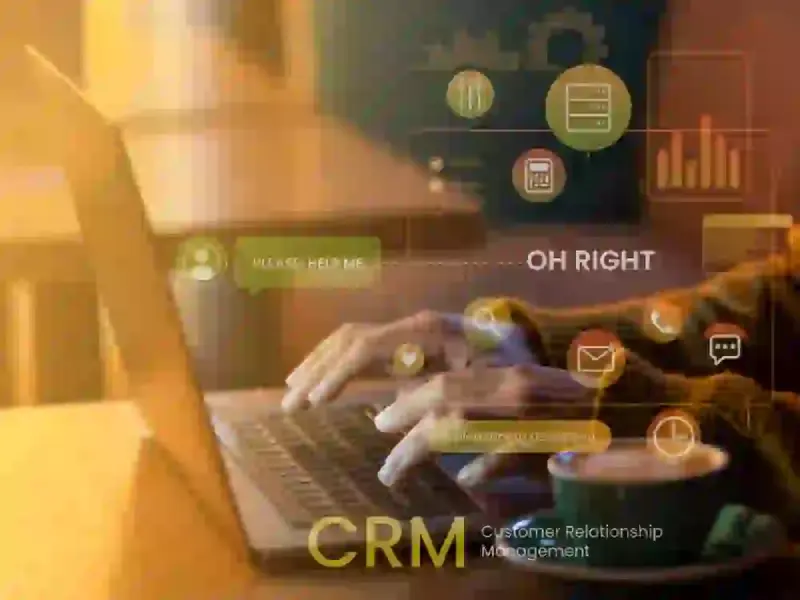Contents
- What is B2B SaaS Company?
- The Rise of B2B SaaS Products
- Why Are Businesses Shifting to SaaS Products?
- Benefits of Saas Product
- Categories of SaaS Products
- To Build a Successful B2B SaaS Marketing Strategy:
- Marketing Tactics for B2B SaaS
- B2B SaaS Marketing Strategy
- Top 10 B2B SaaS Companies in 2024
- Google:
- Adobe:
- Slack:
- Mailchimp:
- Shopify:
- Microsoft:
- SurveyMonkey:
- MathWorks:
- HubSpot:
- AVADA:
- Evolving B2B SaaS Trends
- Future Challenges for B2B SaaS Companies
- Conclusion
The B2B SaaS (Business-to-Business Software as a Service) model is becoming increasingly popular in today's fast-paced digital landscape. But what is B2B SaaS mean? It refers to software solutions delivered online, specifically for business clients. This model allows companies to access and use software applications without needing on-premises installations, making it a convenient and cost-effective option for businesses.
What is B2B SaaS Company?
SaaS is an online software delivery business model in which customers access software applications from a centrally hosted, cloud-based system via a subscription plan instead of downloading them.
SaaS companies maintain the servers, databases, and other software that allow the SaaS product to be accessed and used. These applications can be accessed through web apps, desktops, or mobile apps, allowing users to operate them from anywhere.
B2B SaaS companies are a subset of this model that specifically target businesses as their customers, offering tools for business operations, project management, CRM, and more. The B2B SaaS industry is rapidly growing as businesses increasingly rely on cloud-based services to streamline operations.
SaaS Companies' Pricing Strategies
SaaS companies employ a variety of pricing models based on different needs and customer types. These pricing strategies include:
-
One fee for all users
-
Different fees based on subscription tiers
-
Different fees based on user types
-
Pay as you go
The Rise of B2B SaaS Products
The demand for B2B SaaS products has surged, driven by the need for efficiency and collaboration in business operations. As more companies transition to digital platforms, the necessity for robust SaaS B2B companies to provide solutions tailored to business needs has never been more critical.
One key aspect of a successful B2B SaaS company is understanding B2B SaaS meaning in the context of client needs and market trends. However, simply having a B2B SaaS company is not enough. To stand out in a competitive market, it’s crucial to implement an effective SaaS marketing strategy. This strategy should encompass various aspects, from targeting the right audience to leveraging data analytics for continuous improvement.
Why Are Businesses Shifting to SaaS Products?
There are several key reasons why businesses are shifting toward B2B SaaS products:
-
No need to download the software on your computer or update it manually.
-
It can be accessed from any device anywhere in the world via the Internet.
-
Lower subscription cost compared to the cost of traditional software.
-
Requires less time to launch and use.
-
It can be availed on a per-user basis, offering flexibility to organizations.
Benefits of Saas Product
- Cost-Effective: SaaS reduces upfront costs, eliminates ongoing expenses for maintenance, and follows a pay-as-you-go pricing model, making high-powered software accessible to small businesses.
- Time Management: Installation is quick with an internet connection, and maintenance responsibilities are shifted to the vendor, saving time and eliminating downtime.
- Scalability and Accessibility: SaaS offers flexibility to change usage plans, and web-based access allows users to work from anywhere, promoting efficiency for remote and multi-site workers.
- High Compatibility: Upgrades are seamless with SaaS; the vendor manages updates, ensuring users always have access to the latest version without compatibility issues.
- Guaranteed Levels of Service, Backups, and Data Recovery: SaaS provides guaranteed uptime (e.g., 99.5%), automated backups, and data recovery, ensuring data integrity and system reliability.
- Amplified Security: SaaS solutions often enhance data security, utilizing multiple geographically separated data centers to ensure continuous service delivery even in the face of obstacles.
- High Adoption Rates: Web-based delivery and familiarity with Internet usage contribute to quick adoption rates among the workforces.
- Try Before You Buy: SaaS companies typically offer free trials of full-version products, allowing businesses to assess viability and compatibility before investing.
Categories of SaaS Products
While the applications for SaaS are vast, here are some popular categories where SaaS B2B companies thrive:
Web hosting and eCommerce: Platforms like Shopify support businesses by offering shopping carts, content management systems, and other tools to improve customer experience.
Communication platforms: Tools like Slack and Dropbox help businesses share files and collaborate, especially for remote or distributed teams.
Customer relationship management (CRM): CRM tools like Freshworks assist companies in managing customer interactions, tracking leads, and automating marketing tasks.
Accounting: Services like QuickBooks help businesses manage their accounting functions, eliminating the need for a dedicated accountant.
Payment gateways: Solutions like PayPal offer businesses and customers seamless and secure online transactions.
Human resources: Platforms like Lattice simplify recruitment, payroll, and employee management tasks.
Project management: Tools like Monday.com help businesses manage projects efficiently from start to finish.

To Build a Successful B2B SaaS Marketing Strategy:
Understand Your Audience:
To comprehend your B2B audience, conduct surveys, interviews, and focus groups to pinpoint customer pain points related to Saas content marketing. Utilize gathered insights to tailor Saas content marketing strategies, strategically positioning your product as the sought-after solution for businesses in the SaaS industry.
Determine Your Brand Positioning:
In a competitive market, highlight your offering's individuality. Create a strong brand identity and a compelling Unique Selling Proposition (USP) to build trust. Convey what distinguishes your product, highlighting its unique features and benefits. This not only captures the audience's attention but also leaves a lasting impact, creating trust and trustworthiness in your brand.
Identify Your Goals:
Divide broad goals into sub-goals that match the customer journey. Set quantifiable objectives for awareness, consideration, adoption, renewal, expansion, and advocacy. This strategic approach guarantees a targeted and complete plan that addresses all stages of the customer's journey. Setting explicit and quantifiable objectives creates a road map for success, allowing for exact evaluation and optimization. Aligning goals with various phases enables individualized strategies, enhancing efficacy across the B2B SaaS client journey.
Set a Budget:
Create a reasonable budget that is aligned with your established goals and activities. Customize the budget to meet your company's specific demands and resources, assuring flexibility and efficiency. Consider industry standards to determine acceptable investment levels, achieving a balance between ambition and reality. This method provides financial congruence with corporate objectives while maximizing resource use. By taking into account both internal capabilities and external standards, your B2B SaaS enterprise may navigate the competitive terrain while remaining financially responsible.
Marketing Tactics for B2B SaaS
Leverage Inbound Marketing:
Implement robust strategies for long-term lead generation, emphasizing content creation, SEO, and social media engagement. Complement these efforts with pay-per-click (PPC) advertising on platforms like Google Ads and LinkedIn to diversify lead sources and increase visibility.
Explore Diverse Tactics:
Deploy a multifaceted approach, utilizing engaging landing pages, targeted email marketing campaigns, participation in events/webinars, podcasts for thought leadership discussing Demand Generation vs Lead Generation, compelling testimonials, and active engagement in review sites. This diversified strategy ensures a holistic and comprehensive reach across various channels.
Customer Relationship Marketing:
Shift focus towards customer retention, emphasizing loyalty programs, personalized customer journeys, and the creation of valuable content that adds ongoing value. By prioritizing lasting relationships over one-time transactions, businesses can foster loyalty and maximize customer lifetime value.
Regularly Re-evaluate Strategies:
Adopt a proactive approach by routinely assessing the effectiveness of marketing strategies. Given the dynamic nature of the digital landscape, it's crucial to adapt to evolving trends, optimizing or replacing strategies as needed to maintain competitiveness and ensure sustained success.

B2B SaaS Marketing Strategy
Our comprehensive B2B SaaS marketing strategy, tailored for your success in the competitive SAAS market. As a leading SAAS website design agency, we specialize in crafting visually appealing and user-friendly platforms optimized for conversions. Our approach combines cutting-edge SAAS strategy with in-depth market analysis to ensure maximum impact. We leverage insights into the evolving SAAS market landscape to position your product effectively and drive growth. With our expertise, your B2B SAAS solution will stand out, attracting and retaining clients through every stage of their journey. Trust us to elevate your brand and achieve unparalleled success in the dynamic world of SAAS.
Search Engine Optimization (SEO):
- Increase website exposure to attract potential consumers looking for relevant products/services.
- greater search engine ranks result in exponentially greater Click-Through Rates (CTR), with the top Google result having a tenfold higher CTR than the 10th.
Paid advertisements (pay-per-click):
- Execute effective PPC ads on platforms such as Google, Facebook, and LinkedIn to attract the attention of your target demographic.
- Use numerous ad formats to market items while also developing brand personality and conveying relatable information.
Email Marketing:
- Use email newsletters as a potent content marketing strategy to meet B2B client demands for rationale and ROI.
- Answer critical questions about revenue growth and demonstrate how the product/service leads to company success.
Social Media Marketing:
- Dispel the myth that social media is exclusive for B2C; 55% of B2B buyers use it for research.
- To engage different audiences and develop brand recognition, focus on established platforms such as LinkedIn and Twitter while also exploring emerging ones such as TikTok, YouTube, and Pinterest.
Top 10 B2B SaaS Companies in 2024
Google:
Offers a diverse range of SaaS products, empowering users with collaborative tools like Google Docs and Drive, analytics solutions, and more, solidifying its position at the forefront of digital innovation.
Adobe:
Renowned for its cutting-edge digital media, marketing, and printing software, Adobe stands as a creative powerhouse, with iconic products such as Photoshop and Illustrator shaping industries.
Slack:
Revolutionizing business communication, Slack provides collaboration and chat tools that significantly elevate productivity, fostering seamless teamwork and efficient information exchange.
Mailchimp:
As a leading marketing platform, Mailchimp specializes in email marketing, automation, and transactional emails, offering businesses a comprehensive suite to enhance their online presence and engagement.
Shopify:
Widely embraced for online stores and retail point-of-sale systems, Shopify empowers businesses with its robust e-commerce platform, facilitating a seamless online retail experience for both merchants and customers.
Microsoft:
A tech giant offering an extensive array of cloud products and services, Microsoft dominates with Windows, Office, Azure, and Dynamics, providing holistic solutions for varied business needs.
SurveyMonkey:
Catering to businesses of all sizes, SurveyMonkey is a web-based survey provider enabling data analysis and representation, offering valuable insights through efficient and customizable survey tools.
MathWorks:
Known for pioneering mathematical computing software like MATLAB and Simulink, MathWorks remains a stalwart in providing essential tools for engineers, scientists, and researchers worldwide.
HubSpot:
As a CRM platform, HubSpot plays a pivotal role in helping businesses attract, analyze, and nurture customers, providing a holistic suite of tools for effective customer relationship management.
AVADA:
An emerging eCommerce solution provider, AVADA focuses on delivering innovative and effective business solutions, positioning itself as a dynamic player in the evolving landscape of online commerce.
Evolving B2B SaaS Trends
Hybrid Cloud Solutions:
As data security takes precedence, B2B SaaS companies strategically embrace hybrid cloud solutions. This innovative approach ensures a delicate equilibrium between on-premise and cloud-based services, catering to diverse client needs while prioritizing robust security measures in an era of evolving cyber threats.
AI Integration:
The ubiquitous integration of Artificial Intelligence (AI) within B2B SaaS signifies a transformative era. This not only elevates user experiences to unprecedented levels but also empowers businesses with predictive analytics. AI integration stands as a cornerstone, enabling informed decision-making and driving efficiency across various operational facets.
Vertical SaaS:
A notable trend shaping the B2B SaaS landscape is the rise of Vertical SaaS. Companies are increasingly customizing solutions for specific industries, meticulously addressing the distinctive challenges and requirements unique to each sector. This tailored approach enhances efficiency, fostering a new level of industry-specific optimization and performance.
Collaboration Platforms:
B2B SaaS places a growing emphasis on collaboration platforms, especially pertinent in the era of remote work. These platforms serve as linchpins for seamless communication and project management among geographically dispersed teams. By facilitating efficient workflows and fostering real-time interaction, collaboration platforms redefine the dynamics of teamwork in contemporary professional landscapes.

Future Challenges for B2B SaaS Companies
Data Privacy Concerns:
Data Privacy Imperative
In an era marked by heightened concerns over data privacy, B2B SaaS enterprises face an unyielding mandate to invest substantially in robust security measures and regulatory compliance. The escalating emphasis on safeguarding sensitive information propels these companies into a perpetual cycle of innovation, ensuring the fortification of their systems against evolving cyber threats while staying attuned to the intricate web of data protection regulations that shape the modern digital landscape.
Market Saturation Challenges:
The B2B SaaS realm confronts a looming challenge – the specter of market saturation. As the industry burgeons with innovative solutions, the marketplace risks becoming densely populated with B2B SaaS offerings. This saturation poses a formidable barrier for new entrants striving to carve a niche, requiring them to devise inventive strategies to gain visibility and compete effectively against well-established players with entrenched market positions. In this competitive landscape, leveraging diverse B2B SaaS marketing channels becomes essential for differentiation and reaching target audiences amidst the noise of a crowded marketplace.
Integration Complexity Dynamics
As businesses increasingly adopt a multitude of SaaS solutions, the landscape is rife with integration complexities. B2B SaaS companies stand at the forefront, tasked with providing seamless integrations and ensuring compatibility across diverse software ecosystems. This demands an acute focus on interoperability, necessitating innovative solutions to navigate the intricate web of integrative challenges that arise in an environment characterized by a proliferation of specialized software applications.
Customer Retention Imperatives
In the crucible of heightened competition, maintaining elevated customer retention rates emerges as a pivotal challenge for B2B SaaS entities. The key lies not merely in securing one-time transactions but in delivering sustained value, coupled with unparalleled customer support and personalized experiences. Nurturing enduring relationships becomes paramount, requiring strategic investments in post-purchase engagement, loyalty programs, and responsive support mechanisms to fortify customer bonds in the face of intensifying market dynamics.
Conclusion
The rise of Software as a Service (SaaS) is reflected in how major players in the software industry have embraced this model. The adoption of SaaS has surged, especially due to the shift to remote work during the pandemic.
This shift has given rise to new trends, including the integration of AI in SaaS applications, the emergence of micro-SaaS and vertical SaaS, and the growing popularity of low-code/no-code platforms.
Understanding the B2B SaaS landscape is crucial for businesses aiming to succeed in the digital age. By grasping what is a SaaS business and the benefits of B2B SaaS, organizations can make informed decisions about their software needs. As the B2B SaaS industry continues to evolve, companies must remain adaptable and leverage the expertise of SaaS marketing agencies to maintain a competitive edge.
Related Blogs
We explore and publish the latest & most underrated content before it becomes a trend.
4 min read
Marketing Automation Specialists: The Right Skills and Criteria for Hiring
By Vibhu Satpaul11 min read
What are the Benefits of Using Google My Business for Your Local SEO?
By Nishant Ahlawat
Subscribe to Saffron Edge Newsletter!











